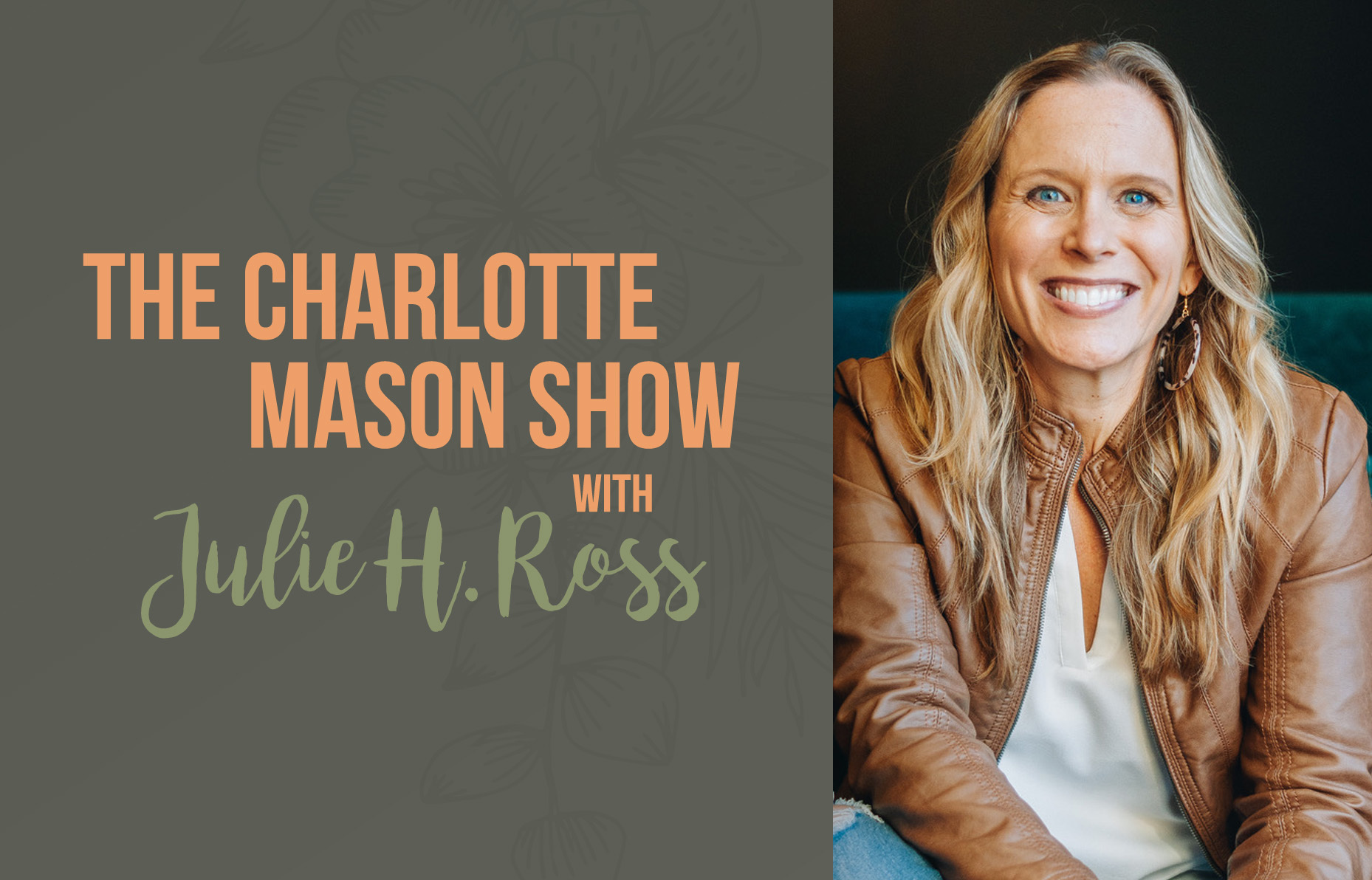CM 3 Audioblog #24 Charlotte Mason’s Principles 3-4
Links and Resources:
Show Transcript:
CM EP 24
Julie -
Welcome to the Charlotte Mason show, a podcast dedicated to discussing Miss Mason's philosophy principles and methods. It is our hope that each episode will leave you inspired and offer practical wisdom on how to provide this rich living education in your modern home school. So pull up a chair. We're glad you're here.
Today's episode of the Charlotte Mason Show was brought to you by Medi-share. Find out more about this affordable Christian alternative to traditional health insurance at medishare.com.
The Charlotte Mason Show would also like to thank their sponsor Operation Christmas Child. Now more than ever, children need hope. As the world struggles with the coronavirus pandemic, we want to let them know that God loves them and has not forgotten them. The best way to get involved is to pack a shoebox yourself. As you specially select each item, packing a shoebox becomes a blessing for you, as well as the child who receives it. Be sure to include a personalized note and photo. If packing a traditional shoebox isn't an option for you this year, we can do it for you. Build a shoebox online. You can find out more at samaritanspurse.org/occ. Again that's samaritanspurse.org/occ.
Now on to the show.
The principles of authority on the one hand, and of obedience on the other, are natural, necessary, and fundamental. But this principle is a partial idea that is continued in the following principle, so we will focus on what she says here, keeping in mind it is only the first part of her thought. We will discuss the second part of her thought after we hash out what authority and obedience actually are.
Our authority as parents and their obedience as children are a natural part of the parent and child relationship. That is a natural and necessary dynamic. The most important part of this principle is that she says the word, but. We have authority. They are expected to be obedient, but there's more to the story.
Authority is the power to influence or command thought, opinion, or behavior. What does that look like in your parenting life right now? What did authority look like in your own childhood at home and at school? Obedience is submissive to the restraint or command of authority. What do you expect from your children in terms of obedience? How do you ask for or expect obedience to happen? Why are authority and obedience necessary? Look closely at the definition of both of these words so that we can understand the giant disclaimer she puts on these dynamics.
Principle four completes this thought about authority in obedience when she says, these principles are limited by the respect due to the personality of children, which must not be encroached upon, whether by the direct use of fear or love, suggestion or influence, or by undue play upon any one natural desire. Our use of our authority and expectations of their obedience are limited by the respect we owe to our children's personalities. Honoring who they are, we must not manipulate them, even if it is out of love. Definitely not by the use of fear, coercing them with our powers of influence, or taking advantage of what we know they want in order to get what we want.
This is a big one to unpack because although almost abstract in the way she describes things, we can think of so many realistic examples of these things. First, let's try to break down the ideas within her statement. Then I'll think of some examples and you think of some too. Finally, we will think of ways to not make these mistakes she warned against.
We have authority over children, and this is a natural necessary part of the relationship. But our authority is limited in its use. We must not use fear, love, suggestion, influence, or take advantage of the child's desire in order to exercise our authority. Children should be expected to be obedient, but we can't demand it at all costs. Over time, they learn to obey because they trust and respect us because we have trusted and respected them first.
We should make our decisions based on the respect we have for the personhood of the child.
Some imagined examples of how we might use authority or expect obedience in ways that don't respect the personalities of children. Knowing that my child wants to please me, I tell her how proud I will be. If she does, the thing I ask her to do. Using a threat in order to get the child to do what we want, such as telling them that they can't have the dessert if they don't finish their math. Getting the child to do what we ask because they fear our reaction if they don't do it. If I don't clean my room, mom's going to yell at me.
So how do we make sure that we aren't unknowingly manipulating our kids? It might be ingrained into us to treat them in these ways, and we may have been raised in these ways ourselves, especially at school. When we respect someone, we are trying to get them to do what we want them to do. Instead, we give them autonomy that we wish to have and communicate with them.
To fully respect them is to see them as their own person with ideas, feelings, wants, and needs.
They are different from us and outside of our control.
Charlotte Mason speaks of parenting under the authority of God and children being under the authority of parents. Therefore, if we are guiding our children in ways that are good, honest, and true, our children can have confidence that when we do ask them to do something, it is worthy of doing. We aren't saying because I said so. We are saying this is worthy of doing so. We must.
What can we do today with this idea? Before we use our parental authority, we can pause and decide how to approach our children in a respectful way. Think of who they are and how to communicate with them in a way that respects their autonomy. Maybe they operate best when they're given two options, rather than being told exactly what to do. Maybe they need a visual schedule, their own list of responsibilities. Maybe they need to move during math lessons. Maybe they need more downtime. Maybe they need you to hold their hand.
This principle is full of deep ideas we could keep ruminating over and over as we parent. This is one of the reasons I love Charlotte Mason. She asks us to be intentional in our interactions with our children. We can never go wrong when we work toward being more respectful, thoughtful, and intentional with the newest generation of people.
Julie
Thank you for joining us today on the Charlotte Mason show. I'm your host, Julie Ross and I would love to meet you in person. All of the great homeschool conventions have been rescheduled to 2021. Go to greathomeschoolconventions.com to find a convention near you.
But you don't have to wait until 2021 to experience the amazing speakers and vendors at the Great Homeschool Conventions. They now offer an online convention that you can find on greathomeschoolconventions.com.
Also, if you would like the show notes for today's episode, go to homeschooling.Mom. If you take a moment to subscribe to this podcast in iTunes and leave a review, I would greatly appreciate it. It helps get the word out about this podcast to our audience.
Thanks for joining me today until next time. May your home be filled with books, beauty, and Biblical truth.
A Special Thanks to our sponsors:
Medi-Share






